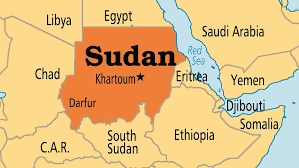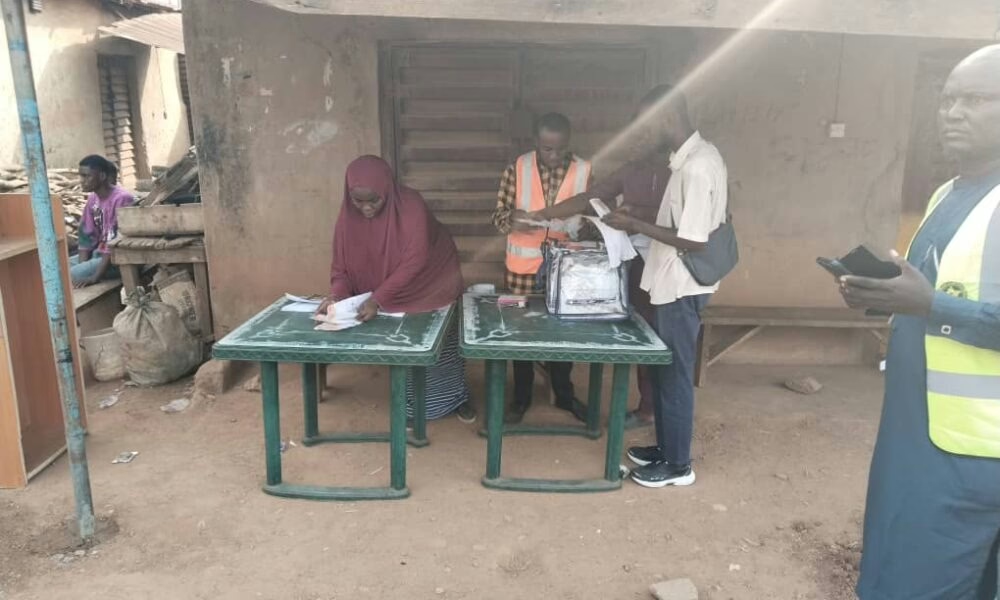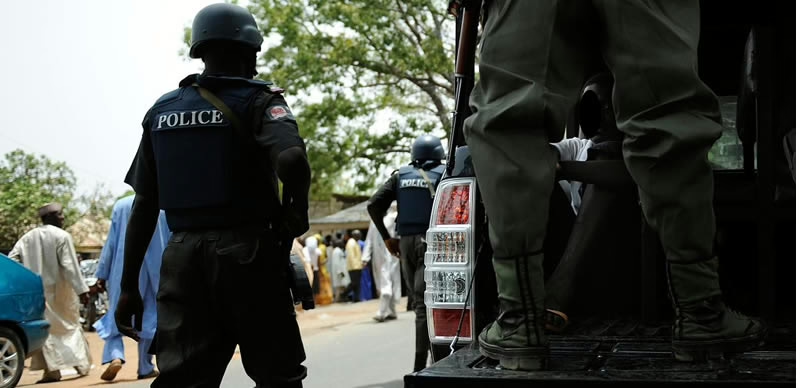Amadou, a teenage herder leading a herd of about 50 cows, beamed with a smile and waved to acknowledge greetings from a passerby, as he led a herd of cattle from the back along the dusty Koka-Oke-Baale-Osogbo Road, on a hot afternoon.
Koka, an agrarian community located off Osogbo/Ibokun Road, has been a hotbed of a frosty relationship between farmers and herders, who often engaged in bloody clashes over the destruction of plantations by cows while grazing.
But close to the Koka/Oke Baale Road where the animals were grazing was a 75-year-old farmer, Tajudeen Olasope, from Gbaemu compound, Osogbo, sitting in quietly, ruing his fate after some cows destroyed almost one acre of arable crops, including cocoyam and melons, he planted the previous year.
Olasope, who had lived in Koka for over 30 years sighed repeatedly, and shook his head in displeasure, as tears rolled down his cheeks forming hot brine down his pale face.
In his low moment, he observed Amadou approaching with the cows as the animals gazed in the open grazing and moved past his house.
Contrastingly, at the entrance to the residential part of the large expanse of land where Koka village sits was a readable notice warning against open grazing.
That notwithstanding, herders freely engage in the act to the chagrin of residents of the village and large farm owners with plantations in the area. With no help in sight from the law-enforcing authorities, even after reports have been made at the appropriate quarters, the affected villagers often attempt to resort to self-help.
The history of the village is replete with instances of bloody clashes involving herders and farmers, the last known being the killing of a man on his farm after his pregnant wife had been reportedly raped by people alleged to be herders.
However, many Fulani herders resident in the village often push back the blame for the destruction of farms and lay the blame on the nomadic Fulani herders, moving with animals from up North down South in search of fresh grass for their cows.
Speaking with during a visit to the village, the Baale of Oturu-Koka, Chief Oyeniyi Adetunji, decried the activities of herders engaging in open grazing in the area.
Adetunji said when the residents of the area observed the impotence of the anti-open grazing law of the state, a meeting was summoned between herders and farmers, where a set of laws were arrived at, to prevent bloodshed.
He, however, disclosed that all came to naught when the herders refused to endorse the law that prohibited them from allowing their cows to graze openly.
“The anti-open grazing law that the government created prompted us to make our laws here too that herders shouldn’t come to our community again with their cows to graze. We did that so that their cows would not eat and destroy our crops.
“There are some herders that live here with us and we know each other. They do not destroy our plants but those that come during the dry season are the ones disturbing us. They are Bororo. We made the law and it was stamped yet they didn’t sign it,” he said.
The chief also told our correspondent handing herders caught destroying people’s farms over to the police made no difference.
He said, “We caught one of them that destroyed people’s farms and we handed him over to the police. He was not prosecuted. He was later released.
“They usually bring cows from different places like Ilorin, Offa, and Ikirun, among others, during the dry season, and come here to eat our plants even at night.
“Not long ago, we called a meeting, every member of the community was there, including the representatives of the Fulani settlers, and the Divisional Police Officer in Ibokun. The seriki of the Fulani was also there.
“We said at the meeting that we didn’t want trouble and that anyone rearing animals should take care of them and feed them within the confines of his premises.”
“We also told farmers to face their farm, one should not disturb another. We won’t support working for a whole year and some people will come and destroy it within a month. Despite those efforts, we still see them engage in open grazing.
“We cannot plant arable crops again because cows will destroy them. After the meeting, we made laws but the representatives of the Fulani people refused to sign,” he added.
The Seriki Fulani of Koka village was unavailable for comment and efforts made to reach him on the phone were unsuccessful.
However, a Fulani herder resident in the village, who identified himself as Abbas, blamed roving herders for the destruction of farms and crops.
He explained that nomadic herders were attracted by the quality of grass and other food sources available in Oturu-Kola.
“It is because Koka has all the features good for animal grazing that you see many Fulani, especially those coming from parts of Kwara State, bringing their animals down here to feed. The village is surrounded by a river and even at the peak of the dry season, there is green grass for animals to eat.
“I was born in Ibokun, a town less than six kilometres from here. My father lived in this area for many years before I was born. I am a herder too but my animals do not destroy anyone’s farm.
“If it happens, I will see the farmer and negotiate compensation. But those Fulani herders who allow their cows to graze on people’s farms are usually not from this community; they move around, especially during the dry season.”
Findings by revealed that open grazing, though prevalent across all local government areas in the state, communities in the Obokun Local Government Area might be among the worst hit.
Speaking during a visit to the area, the Farm Administrator of Swanlux Nigeria Limited, Luke Abiodun, told our correspondent that the integrated farm with specialisation in animal husbandry, arable crops, and palm oil production, was at the mercy of herders as it had lost at least 5,000 seedlings to their activities.
Abiodun also said the farm, with over 27,000 palm trees established about 30 years ago in Koka, had been ravaged by the activities of herders who moved cattle regularly in the area.
“In the past, I think about 12 years ago, Fulani herdsmen only came during the dry season, and they came in multitudes. At that time, we were able to manage them due to some factors.
“At that time, they were not as much as they are now. Insecurity up North is pushing them en masse to the South-West region.
“The challenge of grazing in our farms is not one we have been able to solve permanently, but initially, we were able to manage it in such a way that in some situations, we did not cultivate some crops that we knew cows would easily destroy.
“We focus majorly on oil palm because it is not easy to destroy grown palm trees, but the cow destroyed the new ones (the sprouting trees). Over the years, we have lost not less than 5,000 seedlings for these cows grazing on our farms.”
Abiodun said before the anti-open grazing law passed by the Osun State House of Assembly in August, 2021 came to being, policemen were often invited to intervene whenever a herder was found feeding his cattle on farmlands in the area.
“But after the law was passed, we wrote to the Ministry of Agriculture and the Ministry of Environment and the two ministries referred us to the Nigeria Security and Civil Defence Corps.
“Whenever we reported attacks on our farms to them, they came and arrests were made. But after the arrest, they would release the herders and tell them to pay us compensation.
“But their compensations were not enough for whatever losses we suffered. In recent time, the herders have not hurt any of our people, but they sometimes made attempts to inflict physical injuries with their guns and cutlasses. Whenever that happened, our people ran for their lives, “ Abiodun said.
A farmer from Ilare, another town in the Obokun Local Government Area, Thomas Durojaiye, recalled how some herdsmen invaded his farm in the dead of the night and wreaked havoc.
Durojaiye said when he arrived at the farm located near a boundary with Ekiti State, he noticed that his cocoyam plantation had been badly pillaged by herders who harvested the immature crops planted less than six months earlier for their animals to feed on.
The farmer lamented, “The problem we are facing in the local government here has to do with the activities of herders. Whatever we plant, they will come and eat the crops. When they attacked my farm, the herdsmen even helped their cattle to uproot immature crops on my farm and fed them to their flock. I planted cocoyam and cassava on the farm then.
“My farm was fenced but they destroyed the fence and gained access to the farm.
Nobody was arrested because they move around in the night most times. It was when we got there on the day that we saw the damage they had made.
“Since they have been coming in the night, we cannot take any action because we aren’t there. They harvest cassava, and maize for their cattle to feed on. Sometimes, the herdsman roast corn harvested from the farm and eat.”
In separate interviews with Saturday PUNCH, a peasant farmer in Otan Ile, Oladipo Oguntuyi; Olu Ajayi, who owns a farm in Esa-Oke, and Joseph Dada, also a farmer based in Ikinyinwa – all communities in Obokun – decried the activities of herders and demanded urgent government intervention to prevent them from resorting to self-help.
The anti-open grazing law passed by the state House of Assembly prohibits a minor from leading animals to graze. It also outlawed the movement of animals from one point to another, except by rail or truck.
The law partly reads, “A minor who contravenes the provision of the law has committed an offence, and the guardian or parent of the minor or owner of the livestock as the case may be, shall be vicariously liable upon conviction to a fine of N300,000 only.
“Preference shall be given in issuance of ranching permits to those within or near districts that are landowners interested in livestock business.
“Any herdsman or pastoralist who attacks or threatens to track any farmer, person or commuter whether or not injury is occasioned by the attack shall be guilty of an offence and liable upon conviction to a term of imprisonment of not less than one year without an option of fine.
“Conveyance of livestock on foot from one destination to another in the state is prohibited, except such movement is by rail, truck or pick-up wagon and is within 7 am and 6 pm.”
Efforts to get the Osun State Government’s official reaction to the complaint by the farmers proved futile. Calls to the Osun State Commissioner for Agriculture, Tola Faseru; and the Commissioner for Justice and Attorney General, Oluwole Jimi-Bada, rang out.
Text messages sent to them were also not responded to as of the time of filing this report.
But the lawmaker representing Obokun State Constituency in the Osun State House of Assembly, Adewumi Adeyemi, while speaking with , said the state government was ready to implement the anti-open grazing law.
He, however, urged farmers and herders to embrace peace, and respect the laws of the land, as they would continue to cohabit in the same neighbourhood.
Adeyemi, while promising to personally visit the affected communities and meet all stakeholders concerned, said, “The essence of making a law is to enforce it. The Osun State Government will enforce the anti-open grazing law because the law exists.
“I will personally visit the affected communities and organise meetings with all the stakeholders to find a permanent solution to these issues.
“Meanwhile, everyone should embrace peace and be law-abiding. We should sustain peaceful co-existence between farmers and herders in the interest of development.”











